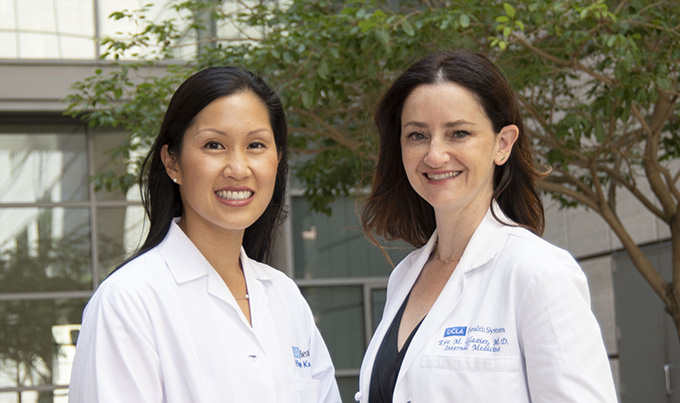(Ask the Doctors) Even short after-dinner walks can improve health
Published 3:35 pm Wednesday, May 7, 2025

- Eve Glazier, M.D., MBA, is an internist and associate professor of medicine at UCLA Health. Elizabeth Ko, M.D., is an internist and assistant professor of medicine at UCLA Health. Send your questions to askthedoctors@mednet.ucla.edu.
Hello, dear readers, and welcome to our monthly letters column. The weather is warming up, which means many of us can take our exercise routines outdoors. We hope you’ll consider taking advantage of the longer and milder days with an after-dinner walk. Committing to even 15 minutes of walking can benefit the heart, lymphatic system, blood sugar control and mood. It’s a worthwhile use of time. And now, onward to the mail.
— Coffee is a popular topic, both in research and among our readers. We have touched on it in recent columns and have received new questions. One reader, who is 70, exercises regularly and works full-time, wondered about the safety of caffeine given a heart problem.
“I’ve had mitral valve prolapse since 1979,” she wrote. “I drink a mushroom tea, which contains 48 mg of caffeine, for the health benefits. Can caffeine cause valve issues to worsen?”
Because caffeine can increase heart rate and blood pressure and cause heart arrhythmias, it can worsen the symptoms of mitral valve prolapse. This is when the valve between the upper and lower left chambers bulges into the upper chamber. The 48 mg of caffeine you drink is considered a moderate amount. (The FDA recommends a cap of 400 mg of caffeine per day.) In light of your heart condition, it would be wise for you to check with your doctor for guidance about the caffeine you are consuming.
— We recently explored the findings of a new study that linked coffee drinking to more robust colonies of certain beneficial microbes living in the gut. This led to a logical follow-up question from a reader.
“Do the benefits of drinking regular coffee also apply to decaf?” he asked. The good news is that yes, researchers have found that the compounds in coffee that benefit the gut microbiome are not affected by the decaffeination process. Both decaf and regular coffee are good for the gut.
— We have written in the past about latent tuberculosis. This is when someone is infected with the TB bacterium but has no active symptoms. We heard from a reader regarding this condition.
“My daughter, who is 16 and healthy, recently tested positive for TB, but her chest X-ray indicates it is inactive,” he wrote. “I have been reading about the potential liver-related side effects of the prescribed treatment and wonder whether it is necessary, or if it would be reasonable to leave it untreated.”
Unfortunately, latent TB can become active at any time. The data show that 10% of people go on to develop active disease. Treatment for latent TB, which typically involves a single drug for a few months, is faster and easier than for active TB, which requires multiple medications for a longer course of treatment. Your family doctor, who is familiar with your daughter’s medical history, can help evaluate whether she is at higher risk of developing active disease and guide you in making this important decision.
Thank you, as always, for your questions, thoughts and comments. We read all your letters and look forward to hearing from you.
Eve Glazier, M.D., MBA, is an internist and associate professor of medicine at UCLA Health. Elizabeth Ko, M.D., is an internist and assistant professor of medicine at UCLA Health. Send questions to askthedoctors@mednet.ucla.edu.





